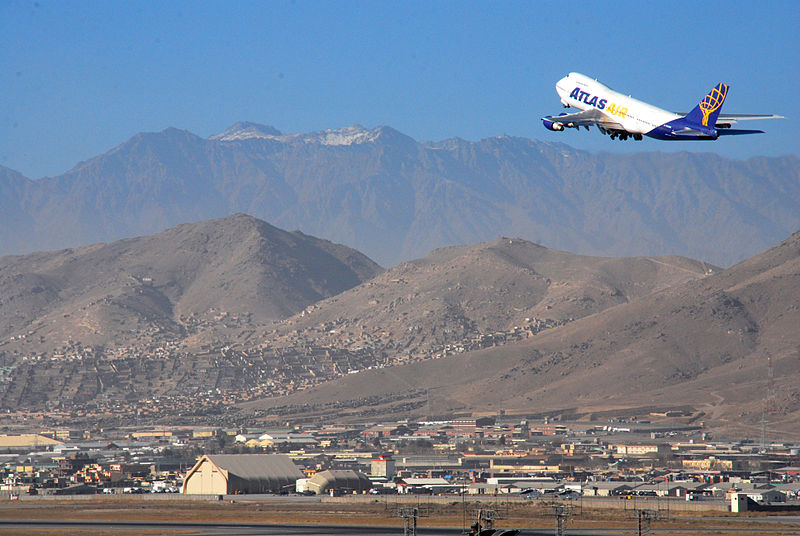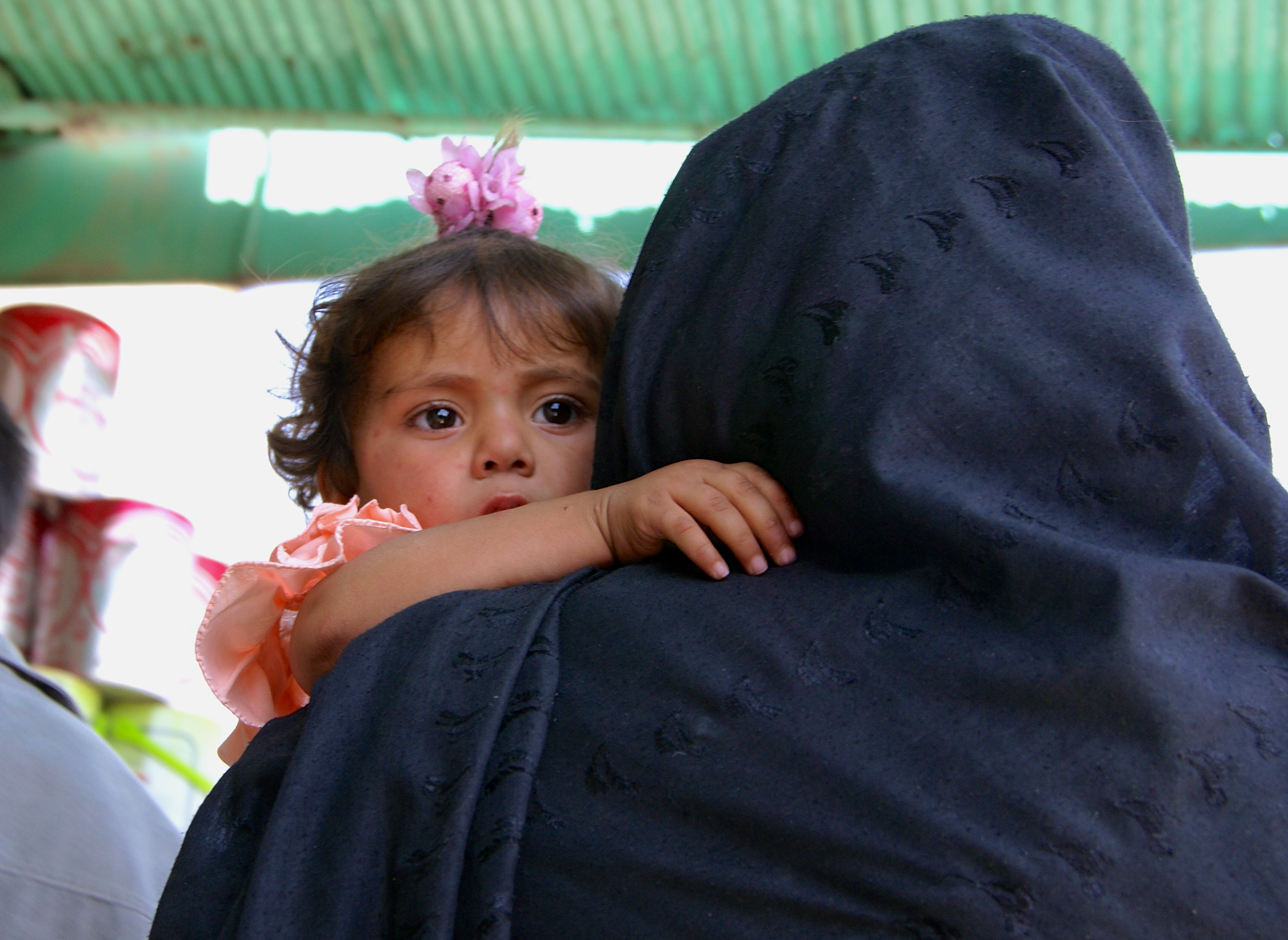
KABUL—On a flight to Afghanistan, I sat next to a young Afghan man traveling alone and returning home for the first time in five years. A boy, really, 19 years old, wearing skinny jeans and a gelled-up faux-hawk, coming back for a wedding and to see an aging grandfather.
The boy had flown from London, where he'd been going to school, to Dubai and then caught the short flight from Dubai to Kabul, which is when he began to get nervous. He used the bathroom three times; he fidgeted constantly; he actually began talking to himself. Finally, he asked me a question in the cockney accent he'd picked up in London: "Is it dangerous?"
He was genuinely frightened to be returning to Afghanistan. His uncle was going to pick him up at the airport and drive him through some of the country's more dangerous provinces to his family's home, and he was worried he'd gone soft while getting his education abroad—too soft for his own country. He didn't feel he belonged there, any more than the foreigner sitting next to him.
It struck me that this young man was part of the equation we don't often think about when we discuss what will happen here when we leave. The hopeful among us talk of Afghanistan's urban generation—people who are educated or at least want to be, sophisticated about things like technology, and progressive about issues like gender relations. A decent future is achievable, so goes this line of reasoning, if this young generation—seven in ten Afghans are under the age of 25—can loosen the grip the old men with beards have on tradition and religion.
I'm as impressed with this generation of Afghans as anyone. I believe they can keep this whole enterprise going in the right direction. The question the boy I met on the plane represented for me is: Do they want to? Do they even want to be here? Two of my closest and most educated Afghan friends are now in the U.S., applying for asylum. They are both the kind of people who, if you met them, would leave you encouraged about Afghanistan's future.
But there's only so much you can do for Afghanistan if you can't or aren't willing to go back. And while there are plenty of inspiring young Afghans committed to working not just on Afghanistan, but in Afghanistan, many of them carry passports from Western countries and fly back and forth all the time. Meaning, they don't always have a lot of skin in the game. They have escape plans. They're not starting families here, buying land here, or spending money here. There are plenty of people working on improving education in Afghanistan, for example, but not enough of them are, at the same time, working to ensure educational opportunities for their own children.
I don't fault the boy sitting next to me on the plane for planning to pay his respects in Afghanistan and then get the hell out of there. He's a teenager who has grown up somewhere else and has learned about the violence in his native country from the front page, above the fold. He's read fewer of the stories buried in Section C about the rapid development that's taken place there in recent years—about the successful vaccination campaigns; the state-of-the-art burn center in Herat; the Afghans who medaled in the Olympics and beat India in a soccer tournament.
Remarkably, the flight we were taking was a brand new Emirates Airline route; we were on its second flight. There are half a dozen carriers doing the Dubai-Kabul run now, even though I have never flown into Kabul on a plane more than three-fourths full, at most. Who sees all these empty airplane seats and decides there is unmet demand for flights into Afghanistan?
After the fall of the Taliban in November 2001, Afghanistan experienced a mass repatriation. By the summer of 2002, the UN was processing 10,000 returnees a day. And by the end of the year, almost 2 million Afghans had returned home. These returnees now represent nearly a quarter of the country's population of 30 million.
But the influx peaked in the middle of the last decade as the Taliban insurgency gained strength, and the rates have since declined. In 2012, 400,000 more people left Afghanistan than entered the country, according to the UN. The country's net migration rate is currently -1.83 migrants per 1,000 people. "Afghanistan is losing its intelligent youth who could be the best engineers and scientists in the future," the economic analyst Azaraksh Hafizi told Afghanistan's Tolo News in December. There's simply no novelty for émigrés now; it's no longer the beginning of an era in Afghanistan.
Indeed, as foreign troops continue to leave, it's more the end of one.
So then: Why all the new flights coming into Afghanistan?
One day it occurred to me: because you need the planes here for all the people trying to leave.
***
The Kabul International Airport has come a long way in the last decade, thanks in large part to money from Japan, which is the second-largest aid donor to Afghanistan after the United States.
The staff deals admirably with the pressures of increased traffic and extremely tight security. A male traveler receives frisks (of varying intimacy) an average of six times from when he enters the vicinity of the airport to the time he boards his plane. Relative to a few years ago, there are fewer urchins extorting you for money in exchange for moving your luggage around in unhelpful ways, and those who remain are now responsive to "No, thank you." The duty-free shop is stocked and open for business, and there's even a business-class lounge. The men in the immigration booths are as mute and ill-tempered as ever—they wield their stamps like they're angry at your documents—but show me a country where passport control is a party. And while the level of security makes it exhausting to fly out (think about how tight security is at, say, a Midwestern municipal airport, and then think about trying to prevent terrorism in the place where the 9/11 plot originated), I see the airport as one of the most encouraging signs of progress here. But it's also a little sad: All these improvements, all the trained police and immigration staff—all to help people and money leave the country.
And that money is fleeing fast. In 2011, an estimated $4.6 billion left the country through the airport—almost as much as the Afghan government's total annual public spending, at $4.8 billion.
The economic impact of the withdrawal is, while not yet paralyzing, ever present (the World Bank estimates that 97 percent of Afghanistan's $15.7-billion GDP consists of international military and development aid, along with spending by foreign troops in the country). The currency is yo-yoing. The value of the dollar plummets when Afghan President Hamid Karzai lashes out at the West, and people rush to buy dollars when a Western official makes a comment that hints at improved relations. It's too much uncertainty for conservative businessmen, who take their money and spread it around to other countries. In fact, the bursting of an economic bubble in Afghanistan is helping inflate another one in Dubai.
I interviewed one businessman who anticipated a construction boom when the Taliban fell, and quickly started shipping steel into the country from Pakistan. His stockyard in Kabul was a hub of activity for more than 10 years; builders purchasing steel from him had to wait three days for their orders to be filled. Now, the merchant has few customers. He stayed in Afghanistan through the communist coup, the Soviet invasion, the civil war, and the Taliban regime, but now, for the first time, he is seriously thinking about leaving the country with all his money and heading to Turkey, where his son is in college.
***
Capital flight is not necessarily an existential problem for Afghanistan. I've heard wise people argue that this is precisely what the country needs. David Foster, an attorney and former reservist in the U.S. Army who did a tour here working on anti-corruption efforts, was concerned from the very beginning with how international money distorted markets and diverted human capital. "There will be a hard landing as the country's resources are redeployed to meet new markets and demands," he told me by email. "Real estate prices will crash in some areas and many businesses that sold primarily to the international coalition will have to start over from scratch. Hopefully that allows more companies to find a home in central business districts and provides the foundation for the launch of promising new businesses."
It's what needs to happen, because "the best and brightest of an entire generation went to work for the coalition rather than entering government service, starting a business or learning a trade," he added. "If they stay, maybe this generation becomes the engine for an entrepreneurial movement in the country."
I see many examples of self-sufficiency—proof that Foster's argument may be the one that prevails after all. The house where I live in West Kabul is in a good neighborhood with terrible streets that turn to impassable bogs with every rainfall. No one bothers to pave the streets because nobody wants to spend money on something others will use for free. And why spend your own money to build something that some foreign NGO may come along and build for free, if you just wait long enough?
But now, for the first time in at least 13 years (and quite possibly for the first time ever) the road is being fixed, because a council of townspeople decided that with the foreigners leaving, they'd have to act themselves if they wanted a new road. And while there is some external support—a foreign aid organization promised to help finish the road if the people completed the sewers themselves—it is still an inspiring act of civic engagement. If the people who can leave are leaving, the people who can't aren't rolling over.
***
On the new Emirates flight from Dubai to Kabul, you can watch a live feed on your seatback-mounted monitor from cameras positioned on the plane's nose, tail, and belly. As far as entertainment goes, the footage tends to be pretty underwhelming—a monotonous mix of clouds and occasional specks of terrain below. But when we entered Afghan airspace and dipped below the clouds, I could see the country's craggy brown mountaintops rushing by at 500 miles per hour. It felt like fast-forwarding through history as successive empires—the Greeks under Alexander the Great, the Mongols under Genghis Khan, the Soviets under Leonid Brezhnev—poured into Afghanistan, only to be eventually, inevitably, pushed back. And as the landscape unfolded rapidly below, it was hard not to feel part of that parade.







